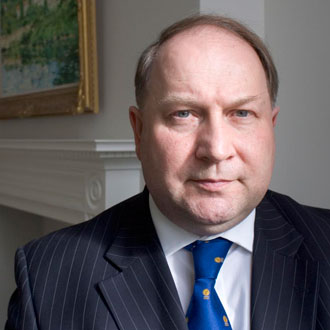We have a year to save general practice

The combination of Government pay policy and spiralling workload has left GP morale at rock bottom.
Some 60% of GPs are considering early retirement and 40% would actively discourage relatives from joining the profession. This rot must be stopped, and before it becomes terminal.
I predict if nothing is done, within three months we will see the first practice bankruptcies, and by the autumn it will become nigh on impossible to secure a GP locum cover for holidays or study leave placing the public at risk from exhausted doctors.
In early 2015, routine waits for a GP appointment will exceed three weeks and winter pressures may push this out further. Partners will be forced to reduce drawings yet again but, by then, GP practices will be no longer financially or operationally able to pick up the workload dumped on them by hospitals.
In 12 months’ time outpatient waiting lists will mushroom as unresourced work is handed back to secondary care. Bed-blocking will reach a critical point over the winter seizing up the hospitals completely.
By the time the next contract comes out, I suspect 5-10,000 GPs will seek early retirement unless there is radical change.
This nightmare scenario can be avoided, but only if the Government and others take immediate action.
Firstly, ministers and NHS England need to have an honest conversation with the public so that it understands that basic general practice services at £70 to £75 per patient a year are economically unsustainable.
Patient expectations have been stoked up by politicians to demand of choice of appointment time, extended hours and a seven-day service, 12 hours a day. If I truly operated a small business then there are 71 patients who are a complete financial loss to my practice and from a commercial perspective ought to be delisted immediately, but because I am a good doctor, I don’t.
Next, the Government needs to fully reimburse legitimate GP practice expenses and prevent unfunded activity landing in GP’s laps. Some GPs have had no take-home pay for several months and practices have been serially starved of funding for expenses inflation since 2004. General practice has consistently delivered more with less, and become a victim of its own success.
If NHS England had more imagination, MPIG could be bought out for £235m, pending an urgent rapid thorough root and branch review of general practice financing. The DDRB would be told not be allowed to pursue its current non-policy on practice expenses and to make an emergency determination before Christmas.
Lastly, we must staunch the haemorrhage of GP retirement and encourage greater participation rates amongst qualified GPs. Some 28% of GPs are over 58 and the time bomb is ticking.
Deaneries must modify their policies requiring UK-trained GPs to undergo a year’s unpaid retraining to re-enter general practice after as little as two years out of the UK.
The Government briefs against us in the media, and so nobody wants to become a GP any longer. Ministers must stop deliberately allowing confusion of turnover with profit and blaming everything on an ‘overgenerous’ 2004 contract – conveniently forgetting that it was a 14-year corrective pay deal endorsed by the DDRB, in return for doing a 52.5 hour week.
But GPs are guilty, too. Doctors have abrogated their leadership and managerial roles. We no longer teach medico-legal affairs, finance or management skills during GP training as we did 25 years ago, and too many colleagues do not understand the responsibilities of a liberal self-governing profession, let alone running their practice. This also has to change.
We have just a few months to save general practice and thus the NHS from implosion. We must act now.
Dr Peter Holden is a Matlock GP and a member of the GPC for 33 years. The views are his own.
Pulse July survey
Take our July 2025 survey to potentially win £1.000 worth of tokens












